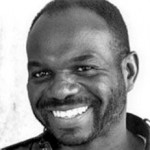Scene One: Two “gossipy” ladies spy a young woman at a Baton Rouge, Louisiana AIDS clinic and rush off to tell everyone at church that she has HIV. Scene Two: The girl corrects them that it’s her grandma who has the virus, snaps her fingers and taunts, “Now run and tell that!”
Stopping the pesky spread of HIV prejudice and misinformation was the theme yesterday of “Now Run and Tell That,” part of an afternoon performance starring 19 black children at Baton Rouge Community College, one of thousands of events around the country marking National HIV Testing Day.
Stepping forward to take the test itself was the focus elsewhere; many thousands of people are believed to have rolled up their sleeves nationally, according to Testing Day’s co-sponsor, the National Association of People With AIDS (NAPWA). But Joyce Turner-Keller’s Baton Rouge AIDS service organization, Aspirations Holistic Tutorial Services, instead tackled the attitudes that keep people away from test sites in the first place—whether passed around between chatty church ladies or between parents and their kids.
Turner-Keller knows from HIV ignorance. In 2001, when she tested positive herself, she says, “I was a good Christian woman, praying every day—I thought HIV had nothing to do with me.” Then, in 2003, she started Aspirations in her living room, as a way to expose poor kids to “intellectual activities,” like dancing, painting and tutoring. “I wanted them to know that their lives were worthy,” she explains. Aspiration is now a full-fledged agency that does HIV outreach and testing and provides financial assistance and spiritual counseling to local people living with the disease.
A current concern in the area, says Turner-Keller, is the way black mistrust of the government has been heightened by Hurricane Katrina—and driven many away from testing. She lists a few of the outrageous theories going around lately. “People are afraid that the DNA will be stockpiled and used in the future or that they will be infected with HIV by the needles used to test,” she says. “This is why testing starts with education.”
With an estimated 250,000 positive Americans unaware of their status, fear of testing is one of the biggest nuts to crack outside Louisiana too. For this year’s events, NAPWA created separate campaign kits addressing some unique fears facing African Americans, women, men who have sex with men (MSMs), Jewish Americans and Latinos. “Knowledge is power, and power can be translated into action,” says Miguel Aguero, NAPWA’s National HIV Testing Day Coordinator.
The Baton Rouge show ended around 4pm yesterday with the audience on its feet offering thundering applause. Then, as everyone filed from the hall, Turner-Keller handed out directions and hours for testing sites in the Baton Rouge area. Her hope? Not just seeing lines outside those doors on Testing Day and beyond, she said. “I’m also hoping that everyone will ‘run and tell’ what they saw today.”
Now Run and Get Tested: HIV Gossip Busters in Baton Rouge






Comments
Comments